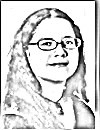"Civic Engagement and the Internet in the Arab World: Towards a new democratic public sphere?" is a seminar of the Oxford Internet Institute, held on 6th January 2005 by Deborah Wheeler. "The invention and global distribution of the Internet has been described as the most important technological event of the 21st Century. Absorbing the technology and becoming an "Internet society" brings with it a whole new way of life, especially for developing countries with authoritarian political systems. Political scientists have wondered if the Internet will help to mobilize democracy, by enhancing public freedoms of information and self expression, rare in authoritarian contexts. Others have pointed to the technology's vulnerability to state surveillance and censorship, which merely serve to enhance state power and limit individual liberties in cyberspace and beyond. One region where expectation for Internet driven political change have stimulated a significant body of research, and a wide range of hypotheses, is the Arab World. This seminar looks at the Internet's ability to contribute to democratic reform and the creation of civic culture in the Arab World. The analysis is based upon a year of fieldwork (Jan, 2004-Jan, 2005) in Jordan, Egypt and Oman. Evidence from the field, including survey data, interviews, participant observation, and statistics, suggest that the Internet is enabling civic engagement, even if institutionalized forms of democracy remain limited at best. This optimistic view is balanced by careful attention to surveillance/censorship of the Internet in the region which begins to explain the complex dialectic between state power and individual freedoms in the region".
Labels: eDemocracy


0 Comments:
Kommentar veröffentlichen
<< Home